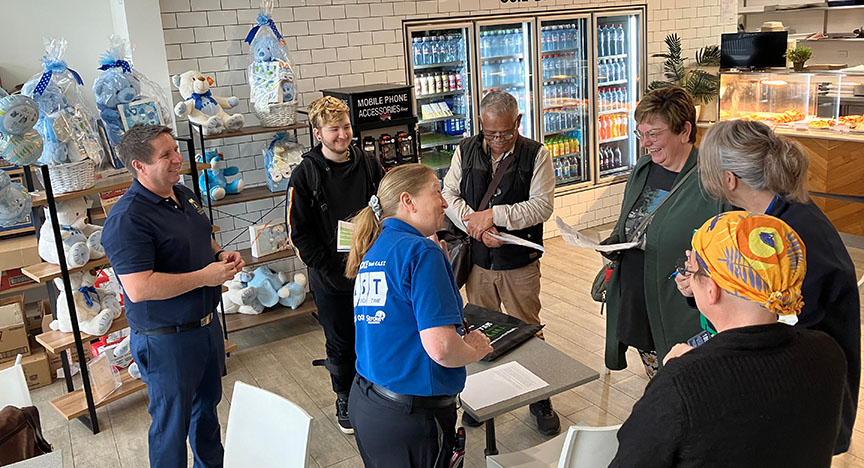
Every minute can make a significant difference when it comes to stroke care.
That is why Ipswich Hospital teams took part in a Code Stroke training simulation, which aimed to identify ways to improve care for potential stroke patients and identify any challenges. The simulation was conducted in partnership with Queensland Ambulance Service and education provider Angels Initiative and included three West Moreton Health "volunteer patients".
Stroke Clinical Nurse Consultant Linda Edwards said that, when it came to stroke care, any minutes saved during the journey to hospital and initial clinical assessment increased stroke patients’ chances of survival and recovery.
“Fast treatment also decreases the risk of disability. So, by conducting the training, we can identify what works well and highlight any opportunities for improvement. Our goal is to improve the care we provide for stroke patients at Ipswich Hospital.”
Strokes occur when there is a blockage in an artery or if an artery bursts, preventing blood getting to a person’s brain cells. Blood carries oxygen and brain cells need oxygen to work. The cells die due to a lack of oxygen and nutrients. Fast treatment is vital to recovery and reducing disability.
Ms Edwards said Ipswich Hospital, which operates a 24/7 service for rapid treatment of stroke, received about 80 Code Stroke calls each month.
She said the simulation highlighted the great communication between Ipswich Hospital teams and QAS.
"QAS has protocols in place to rapidly assess a stroke patient and to be able to get them to the most appropriate hospital in the fastest possible time," Ms Edwards said.
“Thank you to everyone who took part in the simulation, including the QAS teams and our volunteers, who acted as our stroke patients and gave important feedback on the process.”
Last year Ipswich Hospital was recognised nationally at the Quality Stroke Service Awards for the high standard of care it provided to people experiencing stroke.